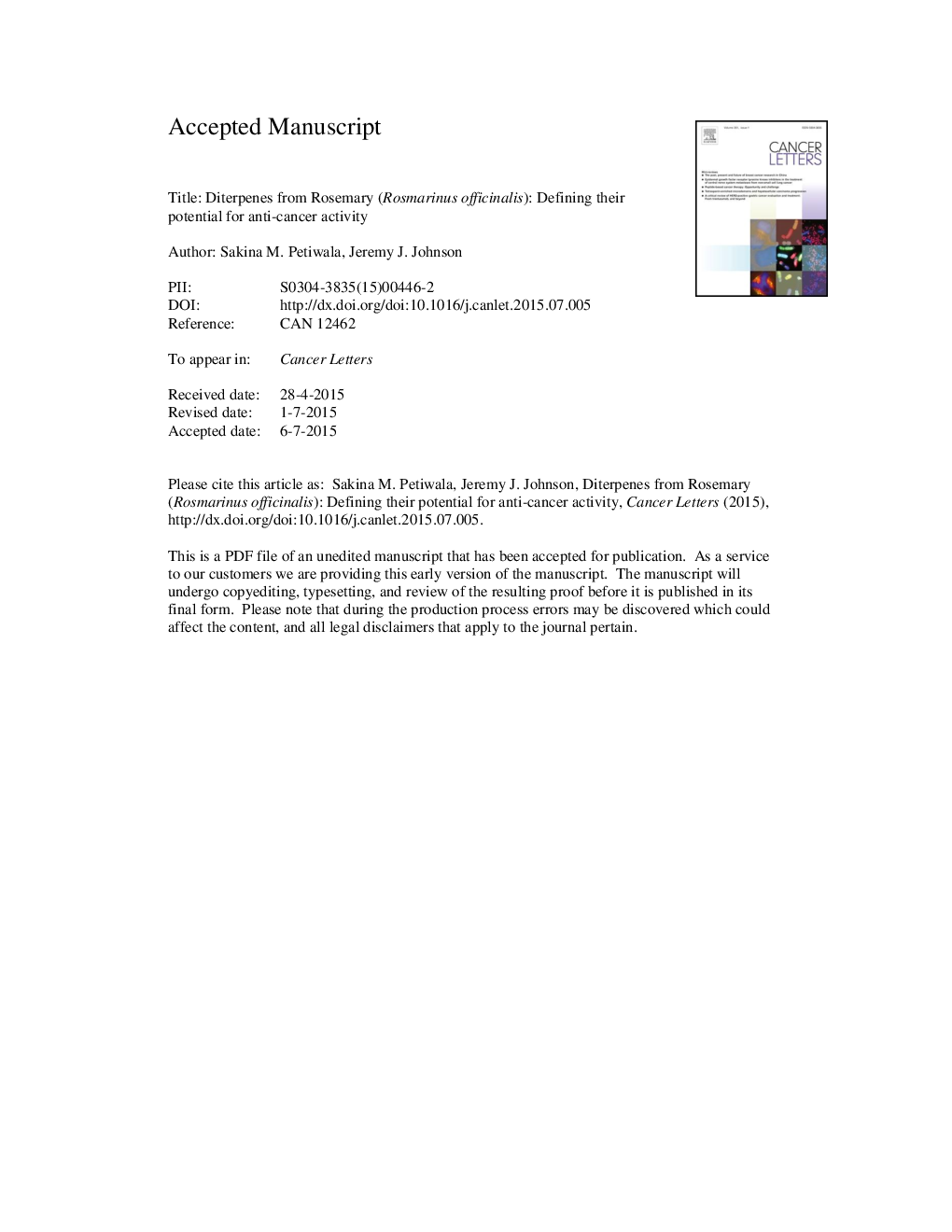| کد مقاله | کد نشریه | سال انتشار | مقاله انگلیسی | نسخه تمام متن |
|---|---|---|---|---|
| 10899439 | 1084376 | 2015 | 34 صفحه PDF | دانلود رایگان |
عنوان انگلیسی مقاله ISI
Diterpenes from rosemary (Rosmarinus officinalis): Defining their potential for anti-cancer activity
دانلود مقاله + سفارش ترجمه
دانلود مقاله ISI انگلیسی
رایگان برای ایرانیان
کلمات کلیدی
موضوعات مرتبط
علوم زیستی و بیوفناوری
بیوشیمی، ژنتیک و زیست شناسی مولکولی
تحقیقات سرطان
پیش نمایش صفحه اول مقاله

چکیده انگلیسی
Recently, rosemary extracts standardized to diterpenes (e.g. carnosic acid and carnosol) have been approved by the European Union (EU) and given a GRAS (Generally Recognized as Safe) status in the United States by the Food and Drug Administration (FDA). Incorporation of rosemary into our food system and through dietary selection (e.g. Mediterranean Diet) has increased the likelihood of exposure to diterpenes in rosemary. In consideration of this, a more thorough understanding of rosemary diterpenes is needed to understand its potential for a positive impact on human health. Three agents in particular have received the most attention that includes carnosic acid, carnosol, and rosmanol with promising results of anti-cancer activity. These studies have provided evidence of diterpenes to modulate deregulated signaling pathways in different solid and blood cancers. Rosemary extracts and the phytochemicals therein appear to be well tolerated in different animal models as evidenced by the extensive studies performed for approval by the EU and the FDA as an antioxidant food preservative. This mini-review reports on the pre-clinical studies performed with carnosic acid, carnosol, and rosmanol describing their mechanism of action in different cancers.
ناشر
Database: Elsevier - ScienceDirect (ساینس دایرکت)
Journal: Cancer Letters - Volume 367, Issue 2, 28 October 2015, Pages 93-102
Journal: Cancer Letters - Volume 367, Issue 2, 28 October 2015, Pages 93-102
نویسندگان
Sakina M. Petiwala, Jeremy J. Johnson,